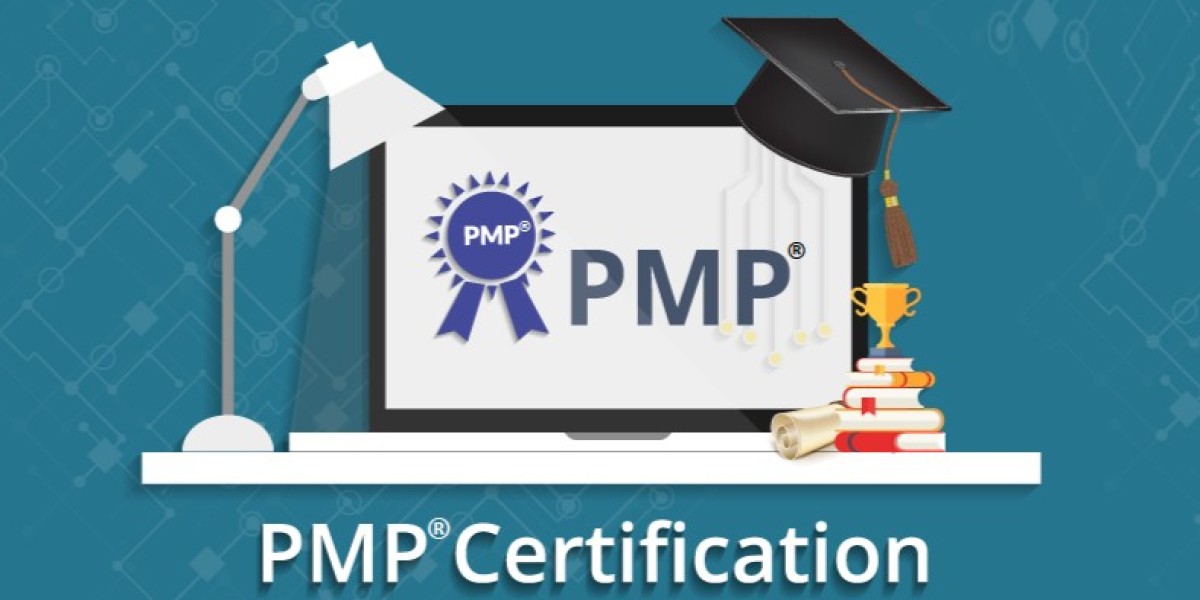As a project manager, you might be considering getting a PMP (Project Management Professional) certification. One of the main questions you probably have is, "How much can I earn with a PMP certification?" In this guide, you'll find the answers to your questions about PMP Certification Salary certification salary, factors that affect these salaries, and the benefits of becoming PMP certified.
Understanding the Value of PMP Certification
The PMP certification is recognized globally and is highly respected in the project management field. This certification proves your expertise and skills in managing projects, which can lead to higher salaries and better job opportunities.
Average PMP Certification Salary
Here's a look at the average salaries for PMP-certified project managers:
Region
Average PMP Certification Salary (USD)
North America
$120,000
Europe
$85,000
Middle East
$80,000
Asia
$70,000
Australia
$110,000
These figures can vary based on factors such as experience, industry, and location.
Factors Influencing PMP Certification Salary
Several factors can influence how much you can earn with a PMP certification:
1. Experience
Experience plays a crucial role in determining your salary. Here’s a breakdown based on experience levels:
Entry-Level (0-5 years): Professionals with less experience typically earn between $70,000 and $85,000 annually, but this range can vary depending on the industry and location.
Mid-Level (5-10 years): With more experience, salaries increase, averaging between $90,000 and $110,000 per year. At this stage, project managers often handle more complex projects and responsibilities.
Senior-Level (10+ years): Senior project managers with extensive experience can expect to earn $120,000 or more. These professionals usually hold leadership roles and manage large teams and high-stakes projects.
2. Industry
The industry you work in significantly impacts your earning potential. Here are the average salaries for PMP-certified project managers in various sectors:
IT and Software: Project managers in this sector are among the highest-paid, earning between $100,000 and $130,000. The demand for IT project managers is high, reflecting the industry's rapid growth.
Construction: Salaries range from $90,000 to $115,000. Construction project managers are in charge of complex, multi-phase projects that require meticulous planning and execution.
Healthcare: Professionals in healthcare earn between $85,000 and $110,000. The healthcare industry values PMP-certified project managers for their ability to oversee projects that improve patient care and operational efficiency.
Finance: In the finance sector, salaries range from $95,000 to $120,000. Project managers here often handle regulatory projects, technology integrations, and process improvements.
3. Location
Geographical location greatly affects salary levels. Project managers in regions with a higher cost of living or greater demand for project management skills typically earn more. For instance, project managers in major metropolitan areas like New York, San Francisco, and London often receive higher salaries compared to those in smaller cities or rural areas.
4. Education
Educational background can also influence salaries. While a PMP certification is a significant credential, having additional degrees or certifications can enhance your earning potential. For example, project managers with an MBA or other advanced degrees often command higher salaries.
Benefits of PMP Certification
Higher Earning Potential
PMP-certified professionals typically earn more than their non-certified peers. This certification can give you an edge in salary negotiations and open up higher-paying job opportunities.
Better Job Opportunities
Many employers prefer or even require PMP certification for project management positions. Having a PMP certification can make your resume stand out and increase your chances of landing a desirable job.
Professional Growth
Earning your PMP certification helps you develop advanced project management skills and knowledge. This not only boosts your career prospects but also enhances your ability to manage projects effectively and efficiently.
Networking Opportunities
Being PMP certified allows you to join a global network of project management professionals. This network can provide valuable opportunities for learning, mentorship, and career advancement.
Credibility and Recognition
The PMP certification is a testament to your skills and knowledge in project management. It provides credibility and recognition among peers, employers, and clients, establishing you as a competent and capable project manager.
Bottom Line
Understanding the potential salaries and benefits of PMP certification helps you make an informed decision about pursuing this valuable credential. Investing in a PMP certification can significantly boost your career and earning potential as a project manager. However, it's important to note that salaries can vary widely based on factors like experience, industry, and location.
FAQs
1. How long does it take to get a PMP certification?
It typically takes several months of study and preparation to pass the PMP exam, depending on your experience and study habits. Most candidates spend around 3 to 6 months preparing for the exam.
2. What is the cost of the PMP certification exam?
The cost for PMI members is $405, and for non-members, it is $555. It is advisable to become a PMI member to take advantage of the reduced exam fee and other member benefits.
3. Can PMP certification be done online?
Yes, you can take the PMP certification exam online, which provides flexibility and convenience. Online proctoring allows you to take the exam from the comfort of your home or office.
4. Does PMP certification expire?
Yes, you need to earn 60 professional development units (PDUs) every three years to maintain your certification. This ensures that PMP-certified professionals stay current with the latest developments in project management.
5. Is PMP certification worth it?
Yes, if you are serious about advancing your career in project management, PMP certification is highly beneficial. It opens up new job opportunities, increases earning potential, and enhances your professional skills.
6. Do I need a degree to get PMP certified?
No, but you do need a combination of project management experience and education to be eligible for the exam. For those without a four-year degree, more experience is required to meet the eligibility criteria.
7. What are the eligibility requirements for PMP certification?
To be eligible for the PMP certification, you need a four-year degree, three years of project management experience, and 35 hours of project management education or CAPM certification. If you don’t have a four-year degree, you need five years of project management experience and 35 hours of project management education or CAPM certification.
8. How can I prepare for the PMP certification exam?
Preparation involves studying the PMBOK Guide, taking PMP preparation courses, participating in study groups, and practicing with sample exam questions. Many resources are available online to help you prepare effectively.
Disclaimer
The salaries mentioned in this article are average estimates and can vary based on numerous factors such as geographical location, industry, company size, and individual experience. These figures should be used as a general guide and not as definitive salary expectations.








